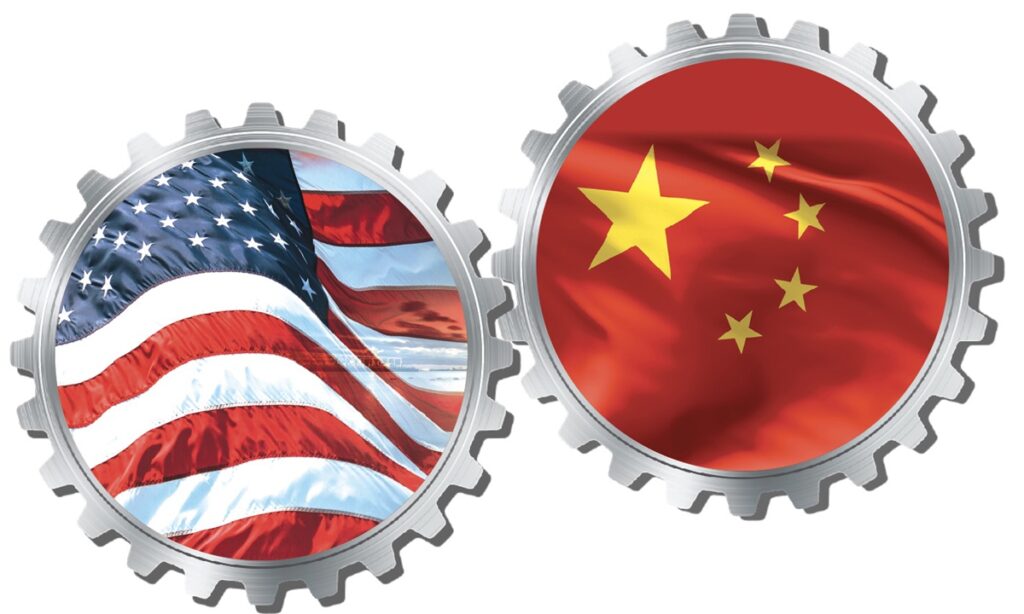As 2024 draws to a close, looking back on the year, the China-US relationship – one of the most important bilateral relations in the world today – has generally remained stable. The two countries have followed the guidance of head-of-state diplomacy and focused on implementing the San Francisco Vision, holding two rounds of strategic communication and five meetings of the Financial Working Group and the Economic Working Group respectively. The two sides also advanced practical cooperation in such areas as counternarcotics, law enforcement and climate change, extended the science and technology agreement, and co-signed each other’s resolution on artificial intelligence at the UN General Assembly. Additionally, nearly 15,000 young Americans visited China through the initiative of “50,000 in five years.” While some negative factors influencing the relationship between the two countries remain, this progress has ensured the momentum of China-US cooperation, and has been widely welcomed by Chinese and Americans across all sectors as well as the international community at large.
From the perspective of human history, no two major powers have ever had such close connections and deep interactions as China and the US. Relations between major powers are not necessarily destined to unfold as a tragedy, as portrayed by some Western scholars. The future of China-US relations should not be a mere repetition of past models of major power relations; rather, they should focus on exploring the right way for the two nations to coexist. The experience of China-US diplomatic relations since the establishment of formal ties demonstrates that if the two countries work as partners, seeking common ground while reserving differences, China-US relations can make significant progress. However, if they view each other as adversaries and engage in unhealthy competition, the relationship will face setbacks or even regress. Although the past 45 years have been marked by ups and downs, the overall stability and progressive development of the relationship serve as strong evidence of this principle.
It is precisely because the China-US relationship is so important that people do not want to see the accumulation of risk factors between the two countries, which could lead to a strategic collision. In fact, in today’s world, global issues and challenges have exceeded the capacity of any single country to resolve. National interests and destinies are more closely intertwined, forming a community with a shared future in which everyone’s interest is closely interlinked. Therefore, the standard by which countries evaluate a major power is no longer its hegemonic strength or its geographical “empire on which the sun never sets,” but whether that country possesses the self-awareness of being a major power, is capable of shouldering responsibilities that match its strength, and can demonstrate a commitment to contributing to global peace and prosperity. In this sense, if China and the US were to compare themselves, it should be in terms of who governs their country better and who contributes more to the world.
As the two largest economies in the world, the ties between China and the US in bilateral trade are intricate and multifaceted, with the resilience displayed being determined by actual demand and supply. Earlier this month, representatives from the Chinese and US governments signed a protocol to amend and extend the Agreement Between the United States and China on Cooperation in Science and Technology, prolonging the agreement for an additional five years. Some foreign media outlets have commented that despite the intense competition between China and the US, “there are also ample reasons for both sides to cooperate in certain areas.” This agreement is one of the first intergovernmental agreements signed after the establishment of diplomatic relations between the two countries. In this sense, the renewal serves as an affirmation of 45 years of cooperation in this field and a commitment to future technological innovation and open sharing.
In less than a month, the US will have a new government. The President-elect Donald Trump recently stated that China and the US could work together to solve all of the problems of the world. It should be noted that Trump recognizes the immense potential of China-US cooperation, but this “cooperation” should be defined jointly by both sides. For instance, cooperation and mutual benefit are evident in many issues, but if the US hopes to solve the fentanyl problem on one hand while simultaneously imposing inexplicable sanctions on Chinese companies on the other; demands that China buy American goods while interfering in scientific cooperation; or wants China to purchase US Treasury bonds while conducting arms sales to Taiwan, these actions are certainly not feasible. In the interactions between China and the US, neither side can reshape the other according to its own wishes. Ultimately, mutual respect, peaceful coexistence, and win-win cooperation are the principles that should be upheld in China-US relations.
The genes of China do not embody the notion that “a strong country is bound to seek hegemony,” and China and the US are not analogous to the two city-states of ancient Greece in the Western world. The US-China relationship represents a “new question” in human history. If there is any historical experience to draw from, it should be the history of the past few decades since the establishment of diplomatic relations between China and the US. It fully demonstrates that as long as China and the US cooperate, many significant and positive achievements can be made.
From traditional fields such as trade and agriculture to emerging areas like climate change and artificial intelligence, there is a broad spectrum of common interests and mutually beneficial cooperation opportunities between China and the US. Both China and US should always adopt a responsible attitude toward history, the people, and the world, expand the list of cooperation, enlarge the cooperation pie, achieve win-win cooperation, and promote the development of bilateral relations along a stable, healthy, and sustainable path.
GT



